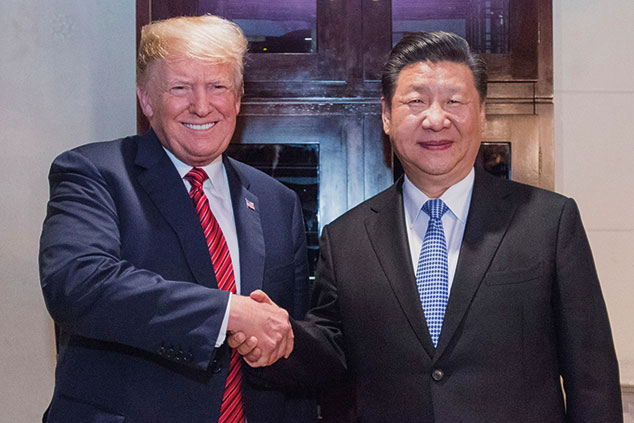
The world’s stockmarkets cheered, with the FTSE 100 eclipsing the 7,000 mark. But we’ve been here before. Last May equities bounced after Beijing postponed new tariffs for 60 days. The truce didn’t last long and the market tumbled back to its previous levels.
A stay of execution?
This time the US president has agreed to postpone higher tariffs on Chinese imports for 90 days. That means the current tariff of 10% on around $200bn of Chinese goods will continue to apply, rather than rise to 25% in January. In return, China has agreed to buy US soybeans and other products, while lowering tariffs on American cars. It will also begin negotiations on problems of intellectual property theft.
Some analysts worry, however, that the two countries’ statements after the deal suggest they “disagree on what was agreed upon”, notes John Authers on Bloomberg. That hardly bodes well, while “the list of problems to overcome in 90 days looks far too long” in any case.
“The G20 ended as expected with smiles,” says Eoin Treacy on Fuller Treacy Money, but “there is a little chance of China making anywhere close to the concessions demanded of the USA, so it is quite likely the market will be back on tenterhooks by the time late January comes around.”
China’s “vague pledges” to increase purchases of US goods” are “unlikely to have much impact on the economy”, says Andrew Hunter on Capital Economics. The US only exported some $70bn of agricultural goods last year, amounting to less than 0.4% of GDP. There is scant scope for China to import significantly more US soybeans now, given they already import the crop from other sources. Meanwhile, US car manufacturers will welcome the news, but most vehicles sold by US firms in China are manufactured there, and therefore the immediate impact on the US economy will be modest.
What’s more, says Armitage, key “underlying issues”, such as China stealing US technology and its protection of state-owned firms from competition, “remain market-moving crises in waiting”. No wonder, then, that the market bounce was fast disappearing by mid-week.